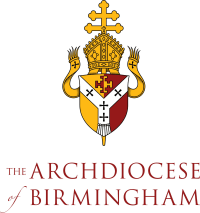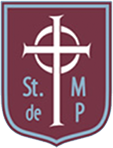Religious Education
Intent
At St. Martin de Porres Catholic Primary School, we place Religious Education at the heart of the curriculum and the Catholic faith permeates everything we do as reflected in our mission statement - ‘Through Jesus we achieve our very best’.
We aim to fulfil the mission of the Catholic Church and help everyone in our community to begin to recognise their vocation: the person that God intends them to be. We do this through providing children with a wide range of opportunities and experiences to enable them to use and develop their God given gifts and talents as well as providing them with the knowledge and cultural capital that will prepare them for the opportunities, responsibilities and experiences of later life.
We recognise that every child is unique and created in the image of God. It is our aim to develop the whole child; to help them to grow in faith and to develop as global citizens with a maturing Christian awareness. We give the religious, spiritual and moral education of our children the highest priority.
Catholic schools, with RE at their core, exist in order to help parents, priests and teachers to pass on faith, in its fullness, to a new generation of young people so that they may come to understand the richness of the Catholic faith, and thereby be drawn into a deeper communion with Christ in his Church.
Implementation
For Religious Education, we follow the Diocesan Strategy, ‘Learning and growing as the People of God,’ as a scaffold for planning and coverage. We ensure that a minimum of 10% of Curriculum time is allocated for Religious Education teaching across both key stages.
 The Strategy provides teachers with a range of suggested cross-curricular activities, which can be differentiated to suit the learning needs of the children in their class in order for them to explore the Catholic faith and achieve the learning outcomes. There is a strong emphasis on pupils engaging with and responding to questions of life in the light of religious teaching and they are challenged to think about how they put the teachings of the church and Jesus into practice in their own daily lives.
The Strategy provides teachers with a range of suggested cross-curricular activities, which can be differentiated to suit the learning needs of the children in their class in order for them to explore the Catholic faith and achieve the learning outcomes. There is a strong emphasis on pupils engaging with and responding to questions of life in the light of religious teaching and they are challenged to think about how they put the teachings of the church and Jesus into practice in their own daily lives.
The children are encouraged to continually think about their own spirituality and teachers plan opportunities for children to explore this through discussion, prayer and Collective Worship.
The Strategy is divided into a number of units for each year group, which cover four main areas of study:
- The Liturgical Seasons of the Church’s Year: The children find out about the significance of each season, its particular signs and symbols and the different liturgies celebrated in each season.
- Scripture: The children study both Old Testament and New Testament Scripture in order to give them familiarity and knowledge of Scripture as well as enabling them to explore and understand how Catholic beliefs are rooted in what Scripture reveals to us.
- The Sacraments: There is a strong Sacramental focus in each year group. In Year 3, the children are fully prepared to receive the Sacraments of Reconciliation and Eucharist, while in Year 6, the children prepare to receive the fruits and gifts of the Holy Spirit through the Sacrament of Confirmation.
- Living as Christians including Prayer: The children learn about what it is to live as Christians today, how the Church is organised from global to parish level and also the opportunities which exist for them to participate in the life of the Church.
In each unit, there are additional planned opportunities to pray and time to reflect. RE at St Martin’s is not solely focused on the RE Curriculum or taught discretely; it is a fundamental part of the Catholic Life of our school which is further enhanced through Collective Worship opportunities.
Curriculum Documents:
Impact
As part of our assessment of children’s learning in RE, we follow the assessment cycle set out by the BDES. The data collected is moderated at all levels: internally by staff, SLT and governors and externally by RE leads from schools within our Diocesan cluster group and other schools that we have formed close working partnerships with.
The RE curriculum challenges children academically as the subject is rigorous in assessment and teaches children how to express opinion and belief with deep levels of analysis in extended writing. The subject enhances levels of literacy and allows children to apply skills to meaningful questions in their written work. Speech and language is developed through intelligent debate, where pupils discuss some of life’s big questions and self-esteem grows through the requirements of class presentations and group work. Evidence of impact in Religious Education is not just collated through books. As a result of these strategies, children at St Martin’s achieve consistently well in all areas of Religious Education.
Our children show an initiative and desire to contribute positively to the lives of those living and working in the locality of the school and to society more widely. We have a strong sense of charitable outreach and as such, our children actively pursue fundraising opportunities and the families of the school wholeheartedly support us in this mission. This is demonstrated by the fact that we consistently raise in thousands of pounds annually, during the season of Lent, for those less fortunate. This is particularly impressive when our school demographics are considered.
Children at St. Martin’s build respectful relationships regardless of faith, gender and race – recognising that everyone has the right to be treated with respect and dignity. They uphold and understand the importance of our British Values and Gospel Virtues and know the difference between right and wrong.
Through the delivery of our RE curriculum and the Catholic Life of our school, by the time they are ready to move on from St Martin’s, our children have been consistently taught that they are unique and important and have thus developed their self-knowledge, self-esteem and self-confidence.
Our children are happy, well rounded individuals who have developed a deep-rooted relationship with God and understanding of the Catholic faith.
 St Martin de Porres
St Martin de Porres 


